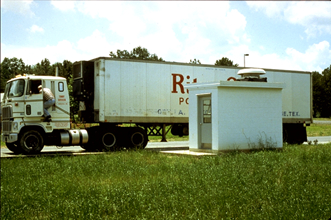|
Go into any supermarket during the fruit and vegetable season and you will find apples from the USA & Canada (4,700 miles), onions from Australia and New Zealand (over 12,000 miles), carrots from South Africa (51,000 miles) or beans from Kenya (3,600miles). Every iceburg lettuce flown from Los Angeles uses 127 calories for every calorie of lettuce. Every carrot calorie from South Africa uses 66 calories in fuel. The average supermarket trolley of food has now travelled 3000 miles. We move 333 million tonnes of food across the UK, generating 41.5 billion tonne-kilometres. each year. Food accounts for 29 per cent of UK freight mileage. In the past 20 years there has been a doubling in food-related tonne-kilometres travelled by road. In the past ten years there has also been a 33 per cent increase in the length of shopping trips (to over 880 miles per person per year) much food related. Food provenance is an increasing issue with the global movement of foods. According to the UK Meat & Livestock Commission Brazilian zebu is ending up in restaurants as Aberdeen Angus. Increasing care needs to be taken to ensure you are getting what you pay for. In the UK, all stages of the food life-cycle emit 22% of greenhouse gases - similar for total road traffic, Airfreight of food has expanded significantly, partly because air fuel is not taxed. Flying food by air uses nearly 40 times the amount of fuel that sea transport uses, yet is now a regular feature of world trade. World Food Trade has increased twice as fast as population has risen over the past 20 years. In the UK, the distance that food is transported by road increased by 50 per cent between 1978 and 1999.
The low costs of fuel that allow this sort of travel mask other costs which: Put locals out of production Most foods require additional packaging and treatment in order to arrive in prime condition. "Food miles" (or kilometres) is a way of measuring the amount your food travels before it arrives in front of you. Food miles are the distance your food travels 'from the plough to the plate.' |
© 2003 EP@W Publishing Co Ltd
Photos courtesy of http://www.usda.gov

